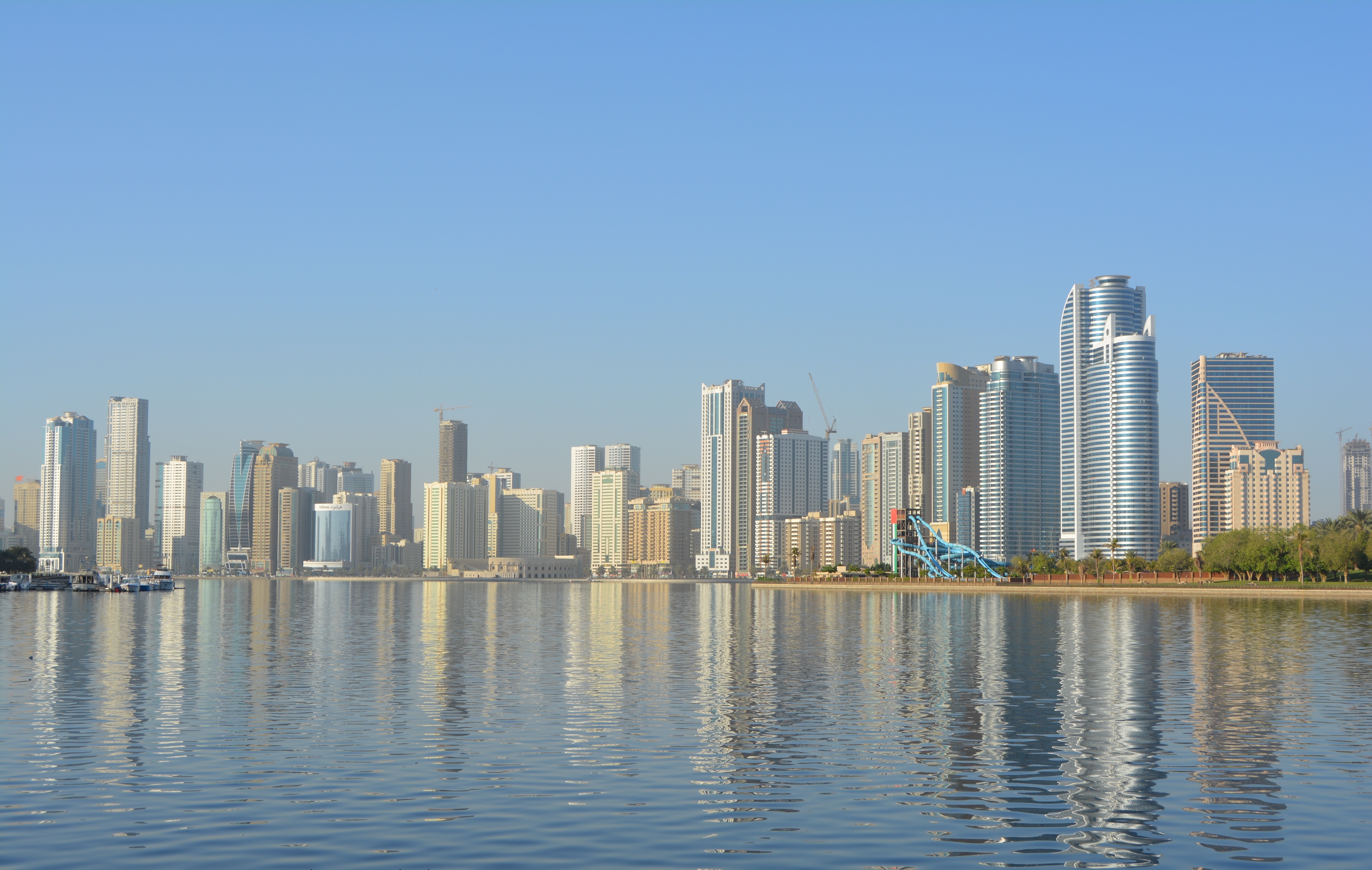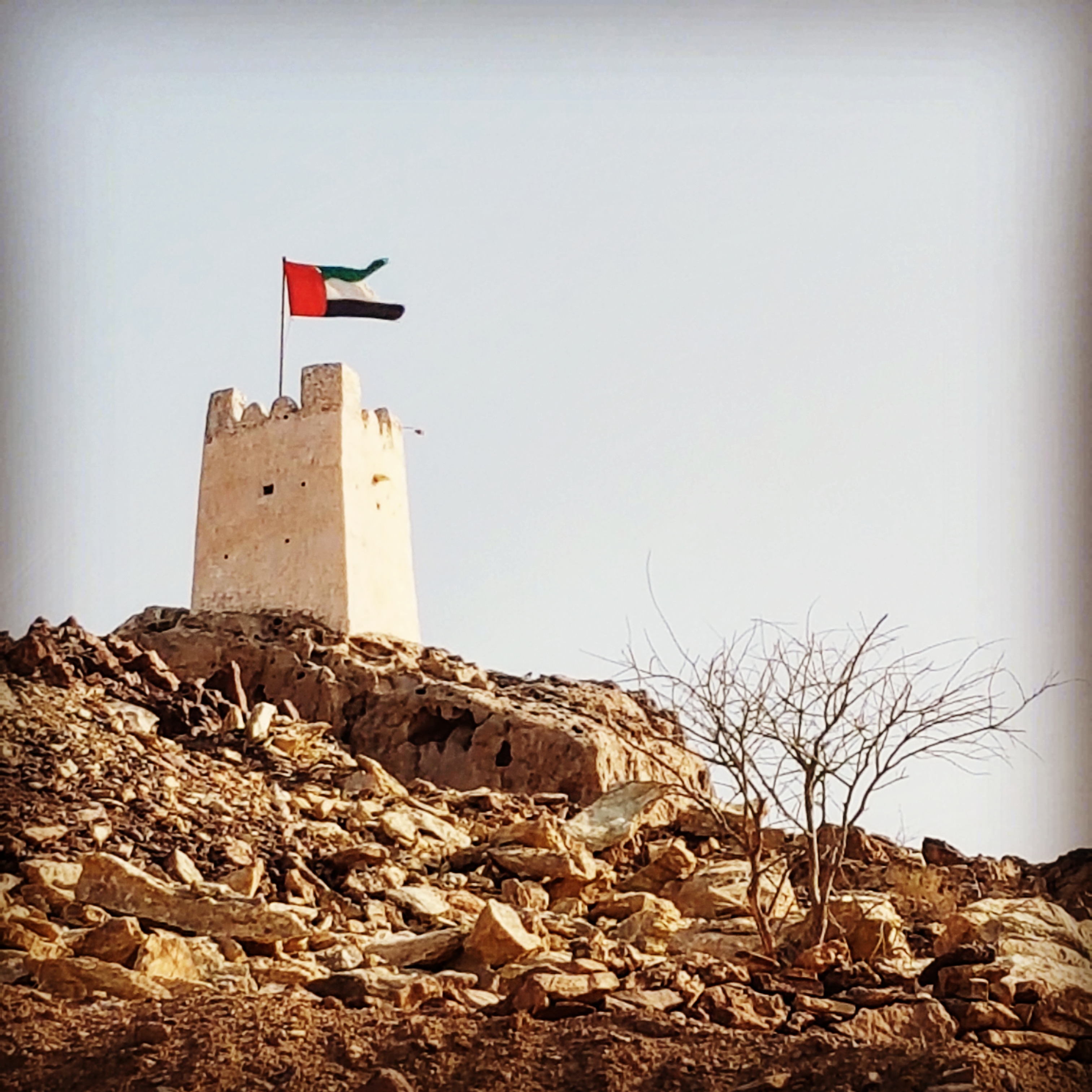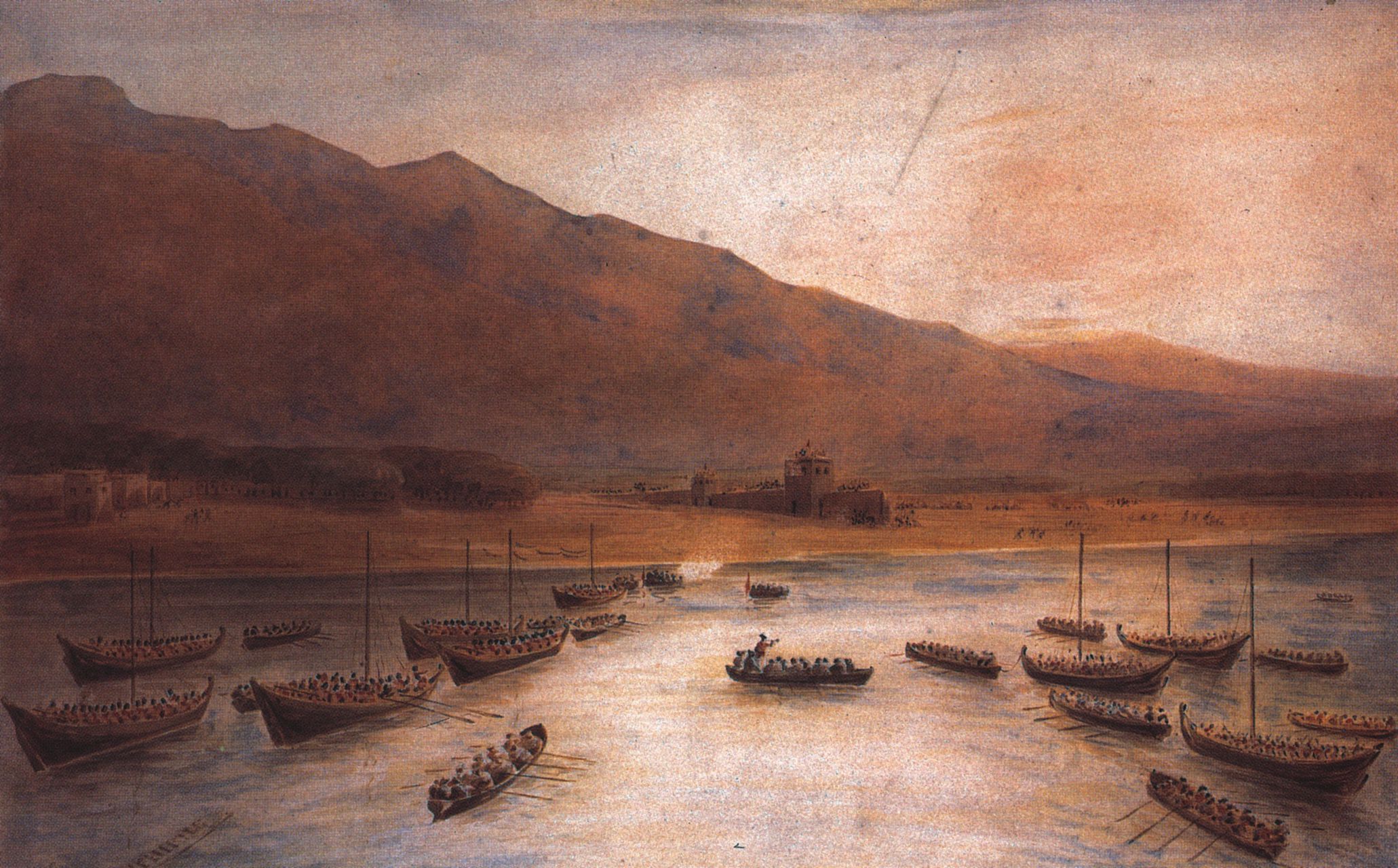|
Dhaid Fort
Dhaid Fort, (Also known as ''Al Hisn Dhaid'') is a restored C18th fortification in the city of Dhaid, Sharjah, in the United Arab Emirates. It has long been an important stronghold for the Ruling families of Sharjah and Ras Al Khaimah and a key strategic asset in maintaining a historical Qawasim dominance of the inland areas of the Northern Emirates. Heritage The reconstruction of the ruined fort took place between 2017 and 2021 and was undertaken on the orders of the Ruler of Sharjah and noted historian, Dr Sultan bin Muhammed Al Qasimi. The original fortification dates back to 1750. The reconstruction of the fort and surrounding area involved the demolition of a number of illegal buildings, including labour accommodation. The fort is intended to form the centre of a new heritage area in the city, including a public square, the restoration of the Al-Sharia Mosque, the construction of a folklore market and majlis as well as a wildlife museum. Dhaid Fort and the city's extensive ... [...More Info...] [...Related Items...] OR: [Wikipedia] [Google] [Baidu] |
Sharjah
Sharjah (; ar, ٱلشَّارقَة ', Gulf Arabic: ''aš-Šārja'') is the third-most populous city in the United Arab Emirates, after Dubai and Abu Dhabi, forming part of the Dubai-Sharjah-Ajman metropolitan area. Sharjah is the capital of the eponymous emirate. The emirate shares legal, political, military and economic functions with the other emirates of the UAE within a federal framework, although each emirate has jurisdiction over some functions such as civil law enforcement and provision and upkeep of local facilities. Sharjah has been ruled by the Al Qasimi dynasty since the 18th century. The city is a centre for culture and industry, and alone contributes 7.4% of the GDP of the United Arab Emirates. The city covers an approximate area of 235 km2 and has a population of over 800,000 (2008). The sale or consumption of alcoholic beverages is prohibited in the emirate of Sharjah without possession of an alcohol licence and alcohol is not served in hotels, restaura ... [...More Info...] [...Related Items...] OR: [Wikipedia] [Google] [Baidu] |
The National (Abu Dhabi)
''The National'' is a private English-language daily newspaper published in Abu Dhabi, United Arab Emirates. The newspaper is owned by Sheikh Mansour bin Zayed Al Nahyan, the deputy prime minister of the United Arab Emirates and member of the royal family of Abu Dhabi. History and profile ''The National'' was first published on 17 April 2008 by Abu Dhabi Media. The government-owned media company ran the newspaper along with other publications, including ''Al-Ittihad'', '' Majid'', ''Zahrat Al Khaleej'' and ''National Geographic Al Arabiya'' (in partnership with ''National Geographic''). In 2016, ''The National'' was acquired by International Media Investments, a subsidiary of the Abu Dhabi Media Investment Corporation, a private investment company owned by Mansour bin Zayed Al Nahyan that is also part-owner of Sky News Arabia. Under new ownership, ''The National'' was relaunched in July 2017, a move marked by relocation to new headquarters and the opening of a foreign bureau in L ... [...More Info...] [...Related Items...] OR: [Wikipedia] [Google] [Baidu] |
Na'im
The Na'im () (singular Al Nuaimi ) is an Arab tribe in the United Arab Emirates. The tribe is also present in other gulf countries. The Na'im is divided into three sections, the Al Bu Kharaiban, the Khawatir and the Al Bu Shamis (singular Al Shamsi). It is from the former section that the current Rulers of the Emirate of Ajman are drawn. Of the three sections, the Al Bu Shamis has become virtually independent and associated closely with the Al Bu Falasa of Dubai. The traditional heart of Na'im territory was the oasis town of Buraimi and nearby Al Ain, where Na'im expansion came at the expense of the Dhawahir tribe, but also rubbed up against the Bani Yas and the allied Manasir. Although the Na'im were linked to the growing Wahhabi influence in the Buraimi area and adopted the doctrine, they allied with other forces to evict the Wahhabis from Buraimi and subsequently occupied many of the forts around Buraimi. Origins In 1818, according to the 'British Assistant Political Agent ... [...More Info...] [...Related Items...] OR: [Wikipedia] [Google] [Baidu] |
Bani Kaab
The Bani Kaab ( ar, بني كعب) (singular Al Kaabi ar, الكعبي) is an Arab tribe in Oman and the United Arab Emirates, also evident in other Gulf countries. Origins The tribe is associated with the area around and to the north of the Omani ''Wilayat'' of Mahdah, and to areas of the Emirates to the East of Buraimi, including the Wadi Khadra, Wadi Hatta and Wadi Qor. Subsections of the Bani Kaab include the Drisah, Makatim, Misaid, Miyadilah, Miyalisah, Mizahamiyin, Nawaljiyin, Salalat, Sawalim, Shwaihiyin, Yidwah and Zahairat. Of these, the Drisah and Shwaihiyin were nomadic while the other sections had settled by the turn of the 20th century, a population of some 7,250 of whom 1,150 were Bedouin. History By 1844, the tribe had allied itself (in common with other tribes of the interior of southeastern Arabia) with Sheikh Khalifa bin Shakhbut Al Nayhan of the Bani Yas in a tribal confederation which united to drive Wahhabi forces from Buraimi. Despite their alliance ... [...More Info...] [...Related Items...] OR: [Wikipedia] [Google] [Baidu] |
Emirate Of Ras Al Khaimah
Ras Al Khaimah (RAK) ( ar, رأس الخيمة; ) is one of the seven emirates that make up the United Arab Emirates (UAE). The city of Ras Al Khaimah, abbreviated to RAK or RAK City, is the capital of the emirate and home to most of the emirate's residents. It is linked to the Islamic trading port of Julfar. Its name in English means "headland of the tent". The emirate borders Oman's exclave of Musandam, and occupies part of the same peninsula. It covers an area of and has of beach coastline. As of 2015, the emirate had a population of about 345,000. The city of Ras Al Khaimah has two main areas - the Old Town and Nakheel - on either side of a creek that is home to mangroves and is framed by the North-Western Hajar Mountains. The emirate also consists of several villages and new gated residential developments, such as Al Hamra Village and Mina Al Arab. The emirate is served by Ras Al Khaimah International Airport. Its geography consists of a northern part (where Ras Al K ... [...More Info...] [...Related Items...] OR: [Wikipedia] [Google] [Baidu] |
Maria Theresa Thaler
The Maria Theresa thaler (MTT) is a silver bullion coin and a type of Conventionsthaler that has been used in world trade continuously since it was first minted in 1741. It is named after Maria Theresa who ruled Austria, Hungary, and Bohemia from 1740 to 1780 and is depicted on the coin. History In 1741 the first MTT was struck according to the Reichsthaler standard with of a Cologne mark of fine silver, or 25.98 grams. In 1750 a new thaler was struck with a gross weight of of 1 Vienna mark of silver, fine (with a fine silver content of 23.39 grams, or of a Cologne mark). In 1751 this new standard Conventionsthaler was effectively adopted across the German-speaking world when it was accepted formally in the Bavarian monetary convention. This new, post-1751 thaler has continued as a trade coin ever since. Since the death of Maria Theresa in 1780, the coin has always been dated 1780. On 19 September 1857, Emperor Francis Joseph of Austria declared the Maria Theresa thaler t ... [...More Info...] [...Related Items...] OR: [Wikipedia] [Google] [Baidu] |
Wali (administrative Title)
''Wāli'', ''Wā'lī'' or ''vali'' (from ar, والي ''Wālī'') is an administrative title that was used in the Muslim World (including the Caliphate and Ottoman Empire) to designate governors of administrative divisions. It is still in use in some countries influenced by Arab or Muslim culture. The division that a ''Wāli'' governs is called ''Wilayah'', or in the case of Ottoman Turkey, "''Vilayet''". The title currently also refers to the ceremonial head of the Bangsamoro, a Muslim-majority autonomous region of the Philippines. Algerian term In Algeria, a ''wāli'' is the "governor" and administrative head of each of the 58 provinces of the country, and is chosen by the president. Iranian term In Iran the term is known as Vāli and refers to the governor-general or local lord of an important province. During the Safavid reign 1501-1722 the former rulers of the then subordinated provinces of the Georgian Kartli and Kakheti kingdom, the Kurdish emirate of Ardalan, ... [...More Info...] [...Related Items...] OR: [Wikipedia] [Google] [Baidu] |
Sultan Bin Saqr Al Qasimi
Sheikh Sultan bin Saqr Al Qasimi (1781–1866) was the Sheikh of the Qawasim and ruler variously of the towns of Sharjah and Ras Al Khaimah, Jazirah Al Hamra and Rams, all Trucial States in their time and now part of the United Arab Emirates. Briefly a dependent of the first Saudi Kingdom, his rule over Ras Al Khaimah ran from 1803–1809, when he was deposed by order of the Saudi Amir and restored in 1820, going on to rule until his death in 1866 at the age of 85. He was Ruler of Sharjah from 1814–1866, with a brief disruption to that rule in 1840 by his elder son Saqr. He was a signatory to various treaties with the British, starting with the General Maritime Treaty of 1820 and culminating in the Perpetual Maritime Truce of 1853. Rule A characteristic of Sultan's rule is that he placed relatives as ''walis'' or headmen of the emirates under his rule and so Ras Al Khaimah was effectively ruled by Mohammed bin Saqr, Sultan's brother, from 1823 until his death in 1845, while ... [...More Info...] [...Related Items...] OR: [Wikipedia] [Google] [Baidu] |
Khalid Bin Ahmad Al Qasimi
Sheikh Khalid bin Ahmad Al Qasimi was the Ruler of Sharjah, a Trucial State and now one of the United Arab Emirates, from 1914–1924 and Ras Al Khaimah from 1914–1921. He acceded on the death of Saqr bin Khalid Al Qasimi. His rule was tumultuous and unpopular, marked by internecine conflicts and public discontent and saw the final disintegration of the Al Qasimi's joint rule over Sharjah and Ras Al Khaimah. Deposed as Ruler of Sharjah in 1924, he went on to become ruler of Dhaid and Kalba (itself recognised by the British as a Trucial State) and a highly influential figure in the ''Shamaliyah'' (the east coast of the peninsula). Accession Saqr bin Khalid Al Qasimi nominated his cousin, Khalid bin Ahmad, as his successor shortly before his death, as his own sons were still minors. One of Khalid bin Ahmad's first acts on becoming Ruler of Sharjah was to settle the question of Jazirat Al Hamra. Home to some 500 houses of the Za'ab tribe (the Emirati family name Al Zaabi deri ... [...More Info...] [...Related Items...] OR: [Wikipedia] [Google] [Baidu] |
Sheikh
Sheikh (pronounced or ; ar, شيخ ' , mostly pronounced , plural ' )—also transliterated sheekh, sheyikh, shaykh, shayk, shekh, shaik and Shaikh, shak—is an honorific title in the Arabic language. It commonly designates a chief of a tribe or a royal family member in Arabian countries, in some countries it is also given to those of great knowledge in religious affairs as a surname by a prestige religious leader from a chain of Sufi scholars. It is also commonly used to refer to a Muslim religious scholar. It is also used as an honorary title by people claiming to be descended from Hasan ibn Ali and Husayn ibn Ali both patrilineal and matrilineal who are grandsons of the Islamic prophet Muhammad. The term is literally translated to " Elder" (is also translated to "Lord/Master" in a monarchical context). The word 'sheikh' is mentioned in the 23rd verse of Surah Al-Qasas in the Quran. Etymology and meaning The word in Arabic stems from a triliteral root connected with a ... [...More Info...] [...Related Items...] OR: [Wikipedia] [Google] [Baidu] |
Bedouin
The Bedouin, Beduin, or Bedu (; , singular ) are nomadic Arab tribes who have historically inhabited the desert regions in the Arabian Peninsula, North Africa, the Levant, and Mesopotamia. The Bedouin originated in the Syrian Desert and Arabian Desert but spread across the rest of the Arab world in West Asia and North Africa after the spread of Islam. The English word ''bedouin'' comes from the Arabic ''badawī'', which means "desert dweller", and is traditionally contrasted with ''ḥāḍir'', the term for sedentary people. Bedouin territory stretches from the vast deserts of North Africa to the rocky sands of the Middle East. They are traditionally divided into tribes, or clans (known in Arabic as ''ʿašāʾir''; or ''qabāʾil'' ), and historically share a common culture of herding camels and goats. The vast majority of Bedouins adhere to Islam, although there are some fewer numbers of Christian Bedouins present in the Fertile Crescent. Bedouins have been referred ... [...More Info...] [...Related Items...] OR: [Wikipedia] [Google] [Baidu] |
Bani Qitab
The Bani Qitab ( ar, بني كتب) is a tribe of the United Arab Emirates (UAE). The singular form of the name, Al Ketbi, is a common family name in the Northern UAE today. Consisting of a settled southern section and a nomadic northern section, the tribe was long influential in the conduct of affairs in the interior of the Trucial States. The Northern branch mostly settled in the inland towns of Dhaid and Al Falayah. Settlement The tribe consisted, at the turn of the 19th century, of some 2,100 nomadic Bedouin (of whom some 600 were fighting men) and 2,700 settled people. The Bedouin ''dar'', or district, of the Bani Qitab stretched from South of the Buraimi oasis to the Eastern foothills of the Hajar Mountains, the Jiri plain to the North of Sharjah and the fertile area around Sharjah's inland oasis town of Dhaid. The Southern Bani Qitab, some 500 households, settled around the village of Aflaj Bani Qitab in the Dhahirah area. Over time these separated from the Northern secti ... [...More Info...] [...Related Items...] OR: [Wikipedia] [Google] [Baidu] |







